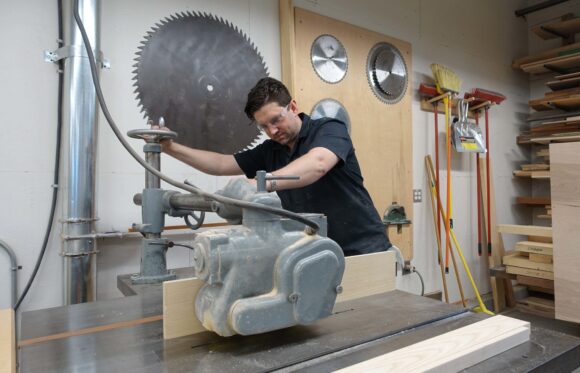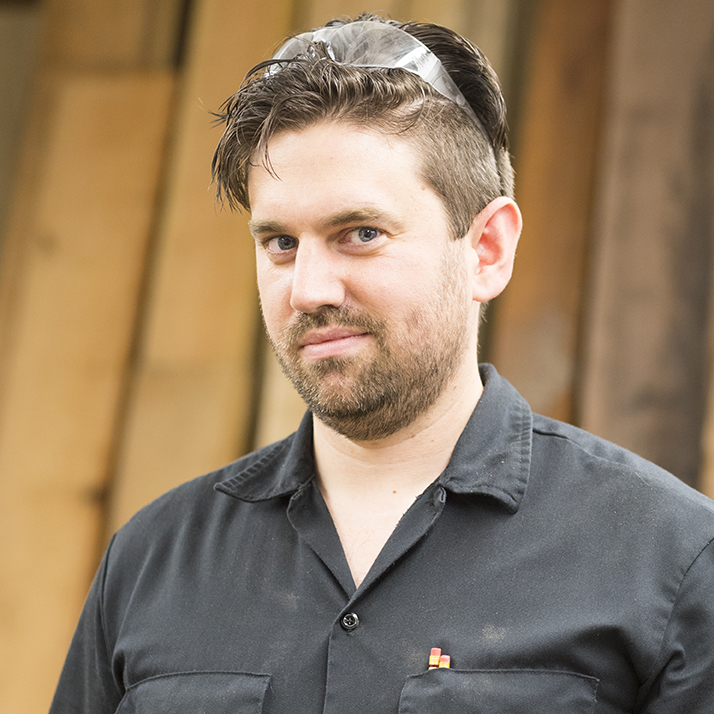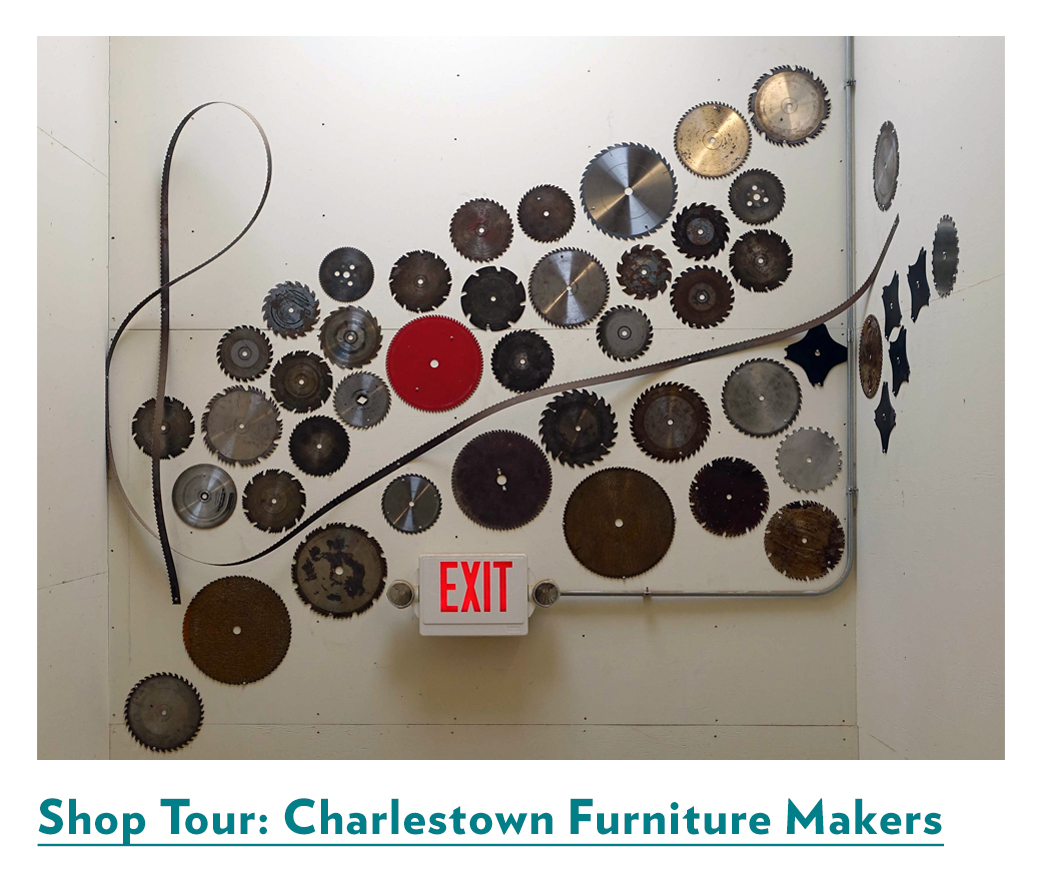At The Bench with Bob Miller CF ’11


For the last six years, Bob Miller CF ’11, small business owner and Shop Technician for the Continuing Education Department, has not made many changes to his private bench space at Charlestown Furniture Makers.
However, three years ago he acquired what he now considers his favorite and most useful tool: an emmert pattern makers bench vice. “That by far is the most used tool in my shop.” he says “The emmert works extremely well. It’s unusual, rare, and was manufactured sometime between 1898 and 1915, making it at least 100 years old. It’s the best thing.”
Bob is passionate about history, woodworking tools, and where the two overlap. In addition to his bench vice, Bob also has a collection of other tools; some modern and durable, others nearly as old as that bench vice, “I also have some 19th century hand tools from England and a band saw made here in Boston in 1882. That one is mostly for looks, though I’m sure we could still make it work.”
The cooperative shop for furniture makers, Charlestown Furniture Makers, is located in one of Boston’s final neighborhoods that is still zoned for industrial use. Established in 2012 by David Ambler CF ’11, the newly renovated 8,000-square-foot, cooperatively run space seeks to provide “a secure, affordable, well equipped, shop space for furniture makers in a Boston location.” The space is packed with machines specially designed for specific woodworking and machining tasks and holds space for 20 makers—nine of which are NBSS graduates.
Bob’s private bench at Charlestown Furniture Makers is where the ethos of modern woodworking and the aesthetics of traditional tools converge.
As a generalist woodworker, Bob is expected to all the different woodworking tasks that in the past, would have been done by any number of individual specialists. This modernist approach to woodworking is much more practical given the space constraints in Charlestown, “If we had every single specialized tool they used in the past, the shop would literally collapse with all the weight of the tools for different applications.”

Bob is one of 17 other tenants who cooperatively share this space optimized for furniture makers. Woodworking, especially generalist work, can be a relatively space intensive practice. By banding together with other woodworkers, Bob and the other residents can afford to continue their practice in the city.
Apart from the cost savings though, according to Bob, working in a cooperative space has lots of other workflow-related upsides, “I get to observe all this other work being done and it motivates me to continue working.” says Bob “In woodworking, there’s plenty of valid ways to get to the end work and most of them are interchangeable; some harder some easier. Being around so many people keeps me from getting fixated on one kind of way to accomplish a task. And that goes both ways.”
Bob additionally credits NBSS with this newly heightened ability to learn through observation. “For me, my time at North Bennet Street School radically changed my understanding of the concept of precision and sharpness.” he explains “Everywhere I go, I’m looking around and thinking ‘that’s not sharp’, ‘that’s not square’ and ‘that’s not quite the way it’s supposed to be’, because I was trained how to identify those things, which now influences my work a lot.”
Though Bob learned a lot as a student at NBSS, he insists that this process of learning and evolving as a generalist woodworker continues each day he returns to work at the School in the Continuing Education department, “Once or twice a year, I’ll take a class through CE. As long as you’re in the School, you’re always learning—doesn’t matter who or where you are.”

